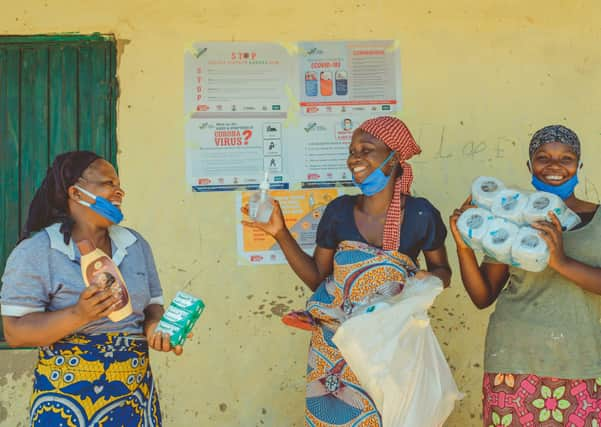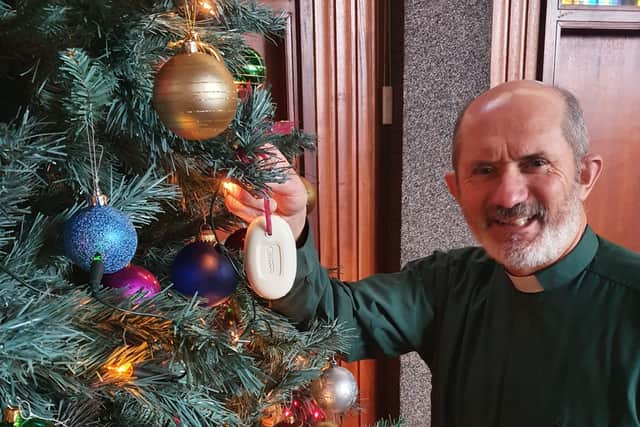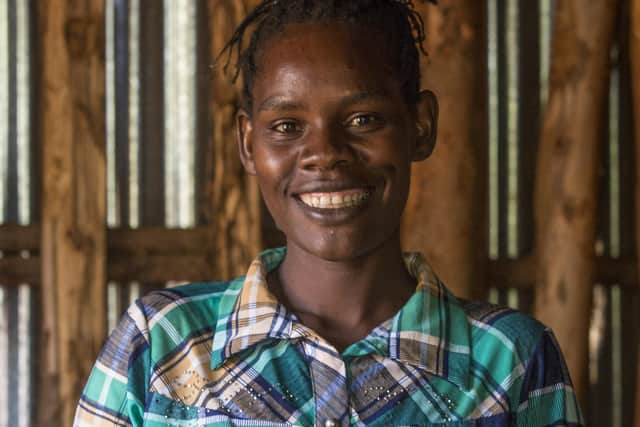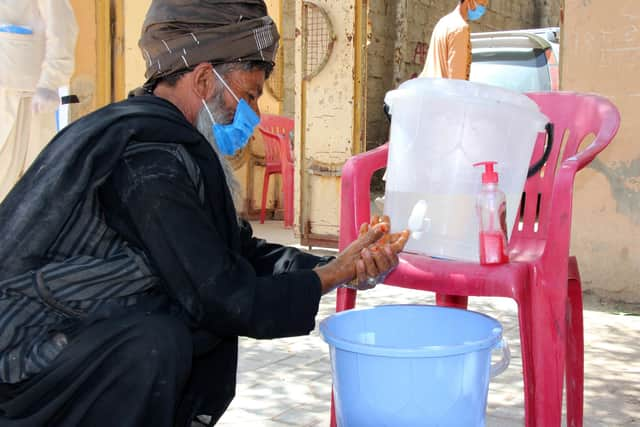How soap is helping in the fight against coronavirus and poverty


Along with physical distancing and wearing a mask, washing your hands thoroughly with soap is a simple and cheap way to prevent the spread of the virus.
For people living in countries with far fewer doctors and nurses than we have in Northern Ireland, they know that if they get sick from coronavirus they won’t be looked after in an ICU bed or with a ventilator. This makes soap play an even more life-saving role.
Advertisement
Advertisement
However, more than 3 billion people across the world – 40% of the global population – don’t have soap and water in their home, making it impossible for them to easily wash their hands.


In countries like Ethiopia and South Sudan, only 1 in 10 families have soap and water in their home. In the Democratic Republic of Congo, it’s only 1 in 20.
This shows how poverty makes billions of people even more vulnerable to coronavirus.
To make matters worse, the World Bank estimates that nearly 90 million people have been pushed into extreme poverty this year because of the economic crisis and widespread job losses caused by the impact of the pandemic. This means people living on less than £1.30 a day in countries unable to afford furlough schemes.
Advertisement
Advertisement
Since the pandemic began, Christian Aid has handed out soap to around 250,000 people in 18 of the world’s poorest countries to help keep people safer from coronavirus.


Many of those we have reached live in cramped conditions in slums or in vast, densely populated camps after being displaced by conflict.
Soap is also playing a vital role in helping communities overcome extreme poverty. Ethiopia has been plagued by swarms of desert locusts who thrive in warm and wet conditions, a consequence of increasingly unpredictable weather brought on by worsening climate change.
They have destroyed crops and entire livelihoods.
Climate change has also resulted in droughts that have caused crops to fail, all of which contribute to an increasing risk of famine.
Advertisement
Advertisement


In southern Ethiopia, Christian Aid supports farming communities struggling to feed their families.
The charity has provided local women with the drought-resistant aloe vera plant and trained them on how to turn their crop into bars of soap that can be sold at market. This project not only gives women a valuable source of income but also increases the availability of soap within the local community.
To celebrate the life-saving power of soap, as well as to raise awareness of the number of families without soap and water in their homes, many Christian Aid supporters are this year hanging bars of soap on their Christmas trees in an act of solidarity.
These soap Christmas decorations are a sign of hope that we can beat both the virus and extreme poverty. Supporters are also sharing their photos on their social media using the hashtag #SoapBuildsHope to raise awareness even further.
Advertisement
Advertisement
To support Christian Aid and help provide soap-making projects to mothers in Ethiopia, visit http://caid.ie/SoapMaker.
Soap and water fast facts
- 3 billion people, 40% of the world’s population don’t have soap and water in their homes. - Fewer than 1 in 20 people in Democratic Republic of Congo (DRC) (population of 88 million) have access to soap and water at home. - 90% of Ethiopians (population 97 million people) do not have access to soap and water at home. - In South Sudan (population 11 million) only 11% have easy access to water and sanitation.
How Christian Aid is using soap to help prevent the spread of coronavirus
- Myanmar - With funding from Irish Aid, Christian Aid’s local partners in Northern Shan and Rakhine states have distributed soap to over 30,000 people.
Advertisement
Advertisement
- Cox’s Bazar, Bangladesh - In Cox’s Bazar, Christian Aid’s local partner has distributed 6,000 hygiene kits containing antiseptic liquid and soap, reaching 30,000 Rohingya refugees.
- Burundi - With funding from Irish Aid, Christian Aid’s local partner is distributing handwashing kits containing soap and water containers to 60 schools benefiting 27,000 children.